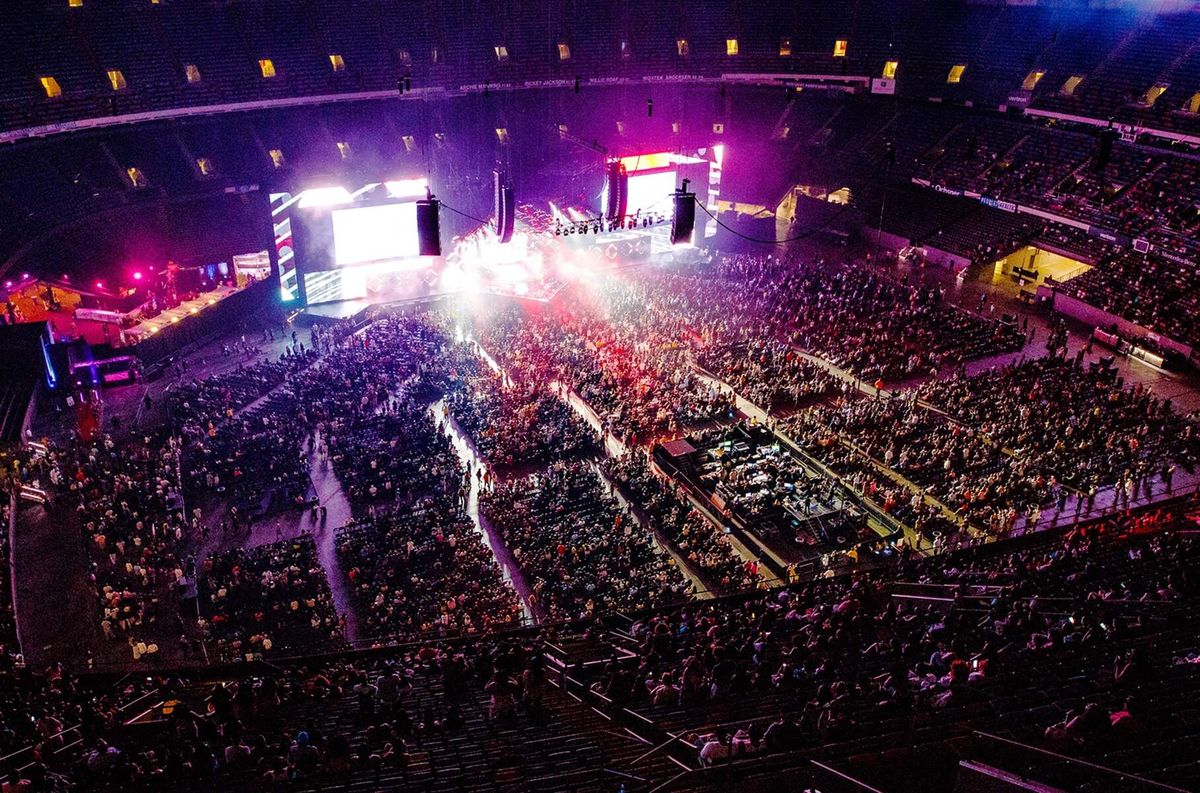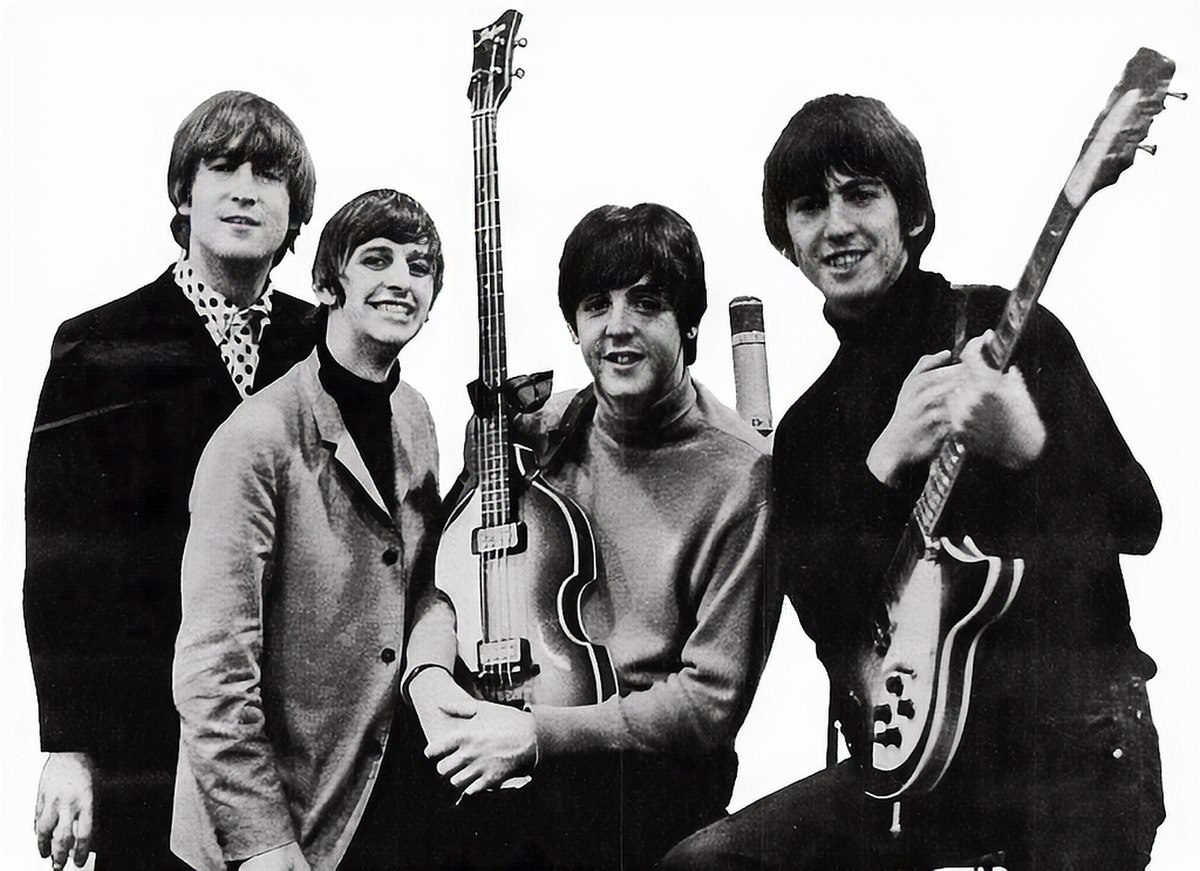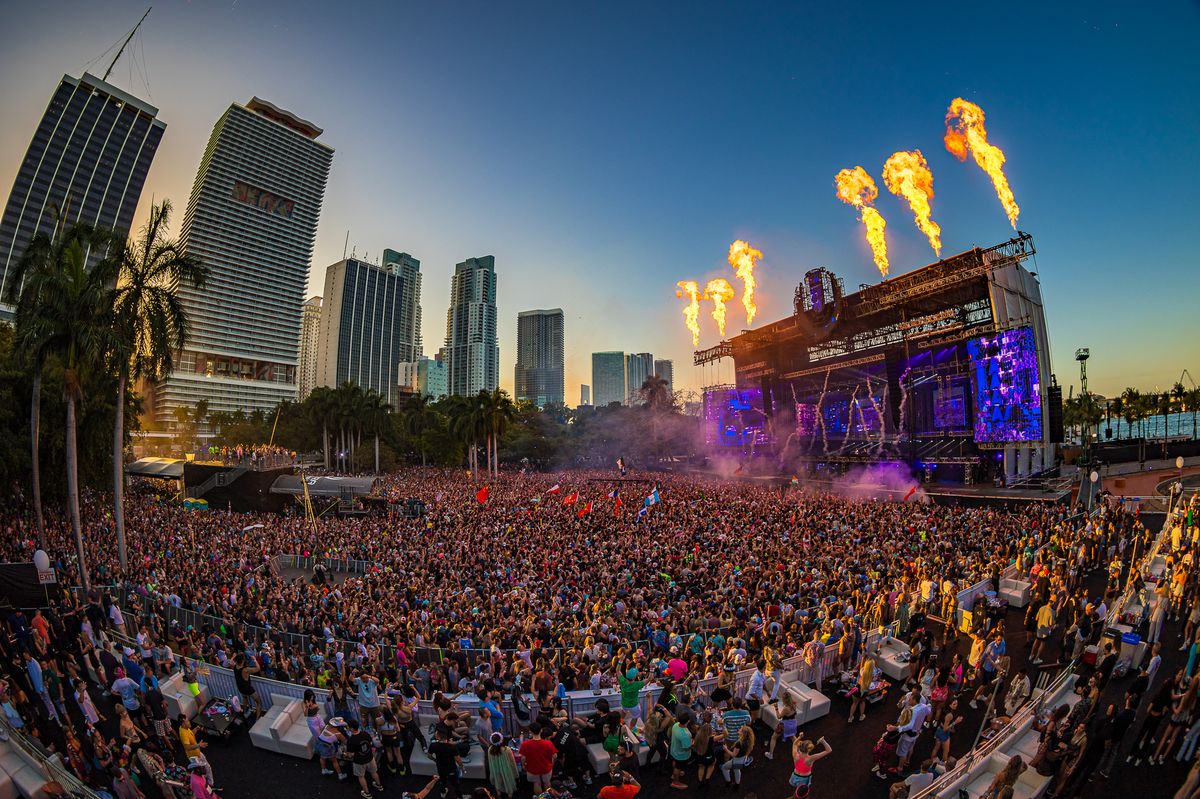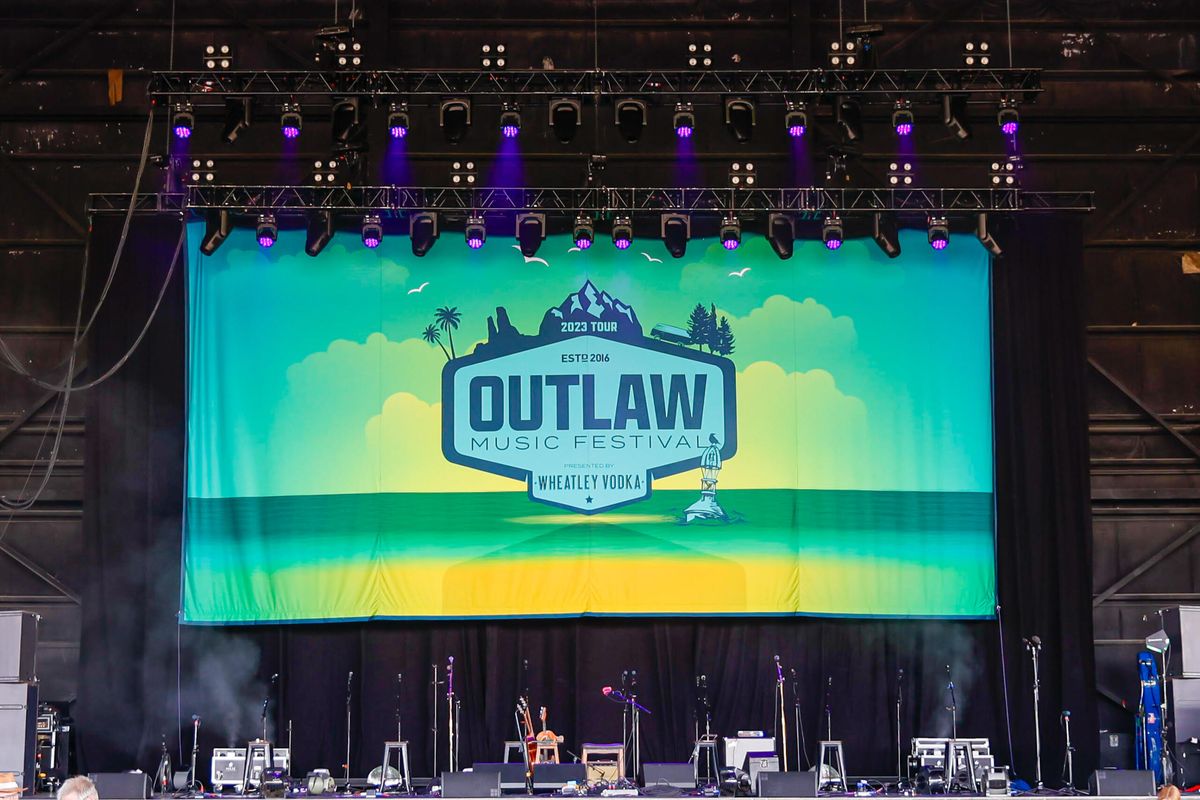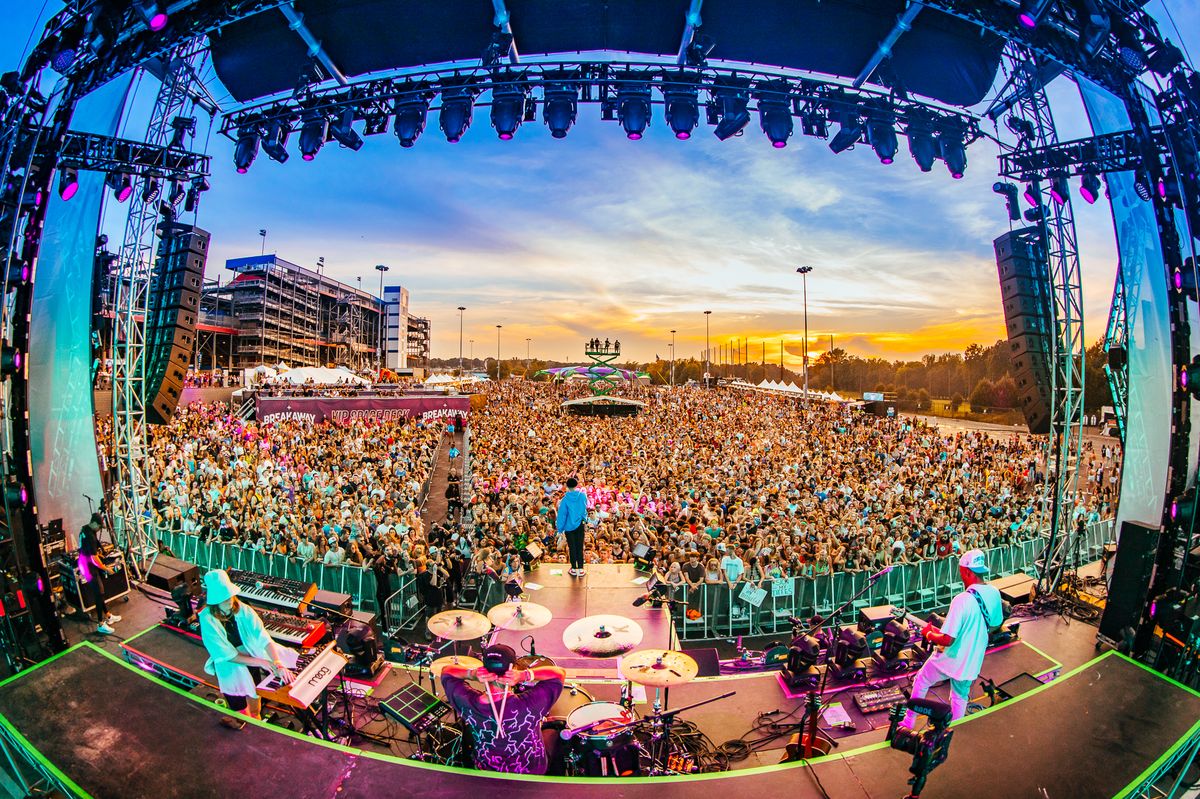Home>Events & Info>Festival>How To Start A Music Festival


Festival
How To Start A Music Festival
Modified: January 22, 2024
Learn the essential steps and tips on how to start a music festival. From booking artists to securing permits, this guide covers everything you need to know. Don't miss out on creating the ultimate festival experience!
(Many of the links in this article redirect to a specific reviewed product. Your purchase of these products through affiliate links helps to generate commission for AudioLover.com, at no extra cost. Learn more)
Table of Contents
- Introduction
- Choosing the Genre and Theme
- Creating a Budget and Funding
- Securing a Venue
- Obtaining Licenses and Permits
- Booking Artists and Bands
- Planning the Stage and Sound System
- Organizing Vendors and Food Options
- Marketing and Promotions
- Ticket Sales and Pricing
- Staffing and Volunteer Management
- Event Safety and Security
- Managing Logistics and Operations
- Providing Amenities and Facilities
- Handling Event Production and Technical Requirements
- Implementing Environmental Sustainability Measures
- Evaluating the Success and Making Improvements
- Conclusion
Introduction
Welcome to the world of music festivals, where the rhythmic beats and melodic harmonies of live performances fill the air, and people come together to celebrate their love for music. Music festivals have become cultural phenomena, attracting music enthusiasts from far and wide to experience the magic of live music in a vibrant and immersive setting.
Whether you’re a music lover with a dream of organizing your own festival, or an event planner seeking to venture into the exciting world of music festivals, this comprehensive guide will provide you with the essential know-how to get started.
Organizing a music festival is no small feat. It requires meticulous planning, a deep understanding of the target audience, and effective execution to create an unforgettable experience for festival-goers. From selecting the right genre and theme for your festival, to managing logistics, attracting top-notch artists, and ensuring the safety and enjoyment of attendees, there are numerous factors to consider to make your music festival a resounding success.
Throughout this guide, we will delve into the key steps and considerations involved in starting a music festival. From the initial stages of choosing the genre and theme, to securing a venue, obtaining licenses and permits, booking artists, planning the stage and sound system, marketing and promotions, ticket sales, staffing, and event safety, we will cover it all.
Additionally, we will explore the importance of managing logistics, providing amenities and facilities, implementing environmental sustainability measures, and evaluating the success of your festival to make continuous improvements. By the end of this guide, you will have a comprehensive understanding of the intricacies involved in organizing a music festival and will be well-equipped to bring your vision to life.
So, let the music play, the crowds dance, and the good vibes resonate as we embark on this journey to create an unforgettable music festival experience!
Choosing the Genre and Theme
One of the first and most crucial decisions you’ll need to make when starting a music festival is choosing the genre and theme. The genre and theme will define the overall atmosphere, target audience, and the type of artists that will perform at your festival.
When selecting the genre, consider your personal preferences, the current music trends, and the demographics of your target audience. Look for genres that have a dedicated and passionate fan base, as they are more likely to attend and support your festival.
Once you have settled on a genre, it’s time to brainstorm a theme that will enhance the overall experience and create a unique identity for your festival. The theme could be based on a specific era, cultural influence, or a particular concept that aligns with the genre of music. For example, a jazz festival could have a 1920s-inspired theme, while a reggae festival could incorporate Jamaican elements into its theme.
The theme should permeate throughout the festival, from the stage design to the decorations, food options, and visual branding. This will create a cohesive and immersive experience for attendees, further enhancing their connection to the music and creating lasting memories.
Keep in mind that the genre and theme should also align with the location and target audience of your festival. For example, if you’re organizing a festival in a beach town, a tropical or beach-themed festival might be a perfect fit. Understanding the preferences and interests of your target audience will help you create a festival that resonates with them.
It’s essential to stay up-to-date with the latest music trends and emerging genres to ensure your festival remains fresh and relevant. Music is ever-evolving, and by embracing new genres and subcultures, you can attract a diverse and passionate audience.
Once you have identified the genre and theme, conduct market research to assess the competition and the demand for that particular genre in your area. Analyze the success of similar festivals and identify gaps or opportunities that you can capitalize on to differentiate your event.
Remember, choosing the right genre and theme sets the foundation for your festival and will influence many other aspects, such as the choice of artists, marketing strategy, and overall attendee experience. Take your time to consider all the factors and make an informed decision that aligns with your vision and resonates with your target audience.
Creating a Budget and Funding
Creating a comprehensive budget is a crucial step in the planning process for your music festival. It ensures that you have a clear understanding of the financial resources required and helps you make strategic decisions to keep your event financially sustainable.
Start by outlining all the potential expenses associated with your festival. This includes artist fees, venue rental, sound and lighting equipment, marketing and promotion, permits and licenses, staffing, insurance, security, and contingency funds. Be as detailed as possible to avoid any unforeseen expenses later on.
Once you have a list of expenses, start researching and obtaining quotes from vendors and service providers to accurately estimate the costs. Prices can vary, so it’s essential to compare multiple options and negotiate favorable rates.
Next, identify potential sources of funding for your festival. This could include sponsorships, grants, ticket sales, merchandise, food and beverage sales, and partnerships. Reach out to local businesses, corporations, and organizations that align with your festival’s values and target audience to secure sponsorship deals. Apply for relevant grants that support cultural or arts events in your area.
Consider offering different ticket tiers and packages to cater to a wider range of budgets and increase overall revenue. VIP tickets, early bird discounts, and group packages can help incentivize early ticket sales and secure additional funding for your festival.
It’s important to create a realistic and conservative revenue projection based on ticket sales and expected attendance. Take into account factors such as competition from other events, market demand, and economic conditions that could impact ticket sales. This will help you set realistic profit goals and guide your financial decisions.
Creating a budget also involves making informed decisions regarding where to allocate funds. Consider prioritizing areas that directly impact the attendee experience, such as artist bookings, sound quality, and stage production. These are typically the elements that festival-goers value the most.
Remember to continuously track and monitor your budget as the planning progresses. Regularly review and reassess the financial status of your festival to identify any areas where you may need to cut costs or invest more funds.
Lastly, always have a contingency plan in place. Unexpected expenses or circumstances can arise, and having a financial safety net will give you peace of mind and the ability to adapt to any unexpected challenges that may arise.
By creating a well-thought-out budget and exploring different funding opportunities, you can ensure the financial viability and success of your music festival.
Securing a Venue
Choosing the right venue is a critical aspect of organizing a successful music festival. The venue sets the stage for the entire event, providing the space and atmosphere needed to create a memorable experience for attendees.
When selecting a venue for your music festival, consider several factors:
- Capacity: Determine the expected attendance of your festival and match it with a venue that can comfortably accommodate that number of people. It’s important to strike a balance between having enough space for attendees to move around freely while creating an energetic and vibrant atmosphere.
- Location and Accessibility: Choose a venue that is easily accessible for your target audience. Consider proximity to public transportation, parking availability, and nearby amenities. The location should also align with the theme and ambiance you want to create for your festival.
- Infrastructure: Ensure that the chosen venue has the necessary infrastructure to support your festival’s technical and logistical requirements. This includes sufficient power supply, adequate staging areas, sound and lighting equipment, and amenities such as restrooms and water facilities.
- Permits and Zoning: Check local regulations and obtain the necessary permits and zoning approvals to host a music festival at your chosen venue. This may include permits for noise, alcohol, food service, and crowd control. Engage with local authorities and stakeholders early in the planning process to avoid any potential roadblocks.
- Cost and Budget: Consider the financial implications of renting the venue. Identify any additional costs associated with the venue, such as security, insurance, cleaning fees, and maintenance. Negotiate rental rates and terms to ensure it aligns with your budget.
- Flexibility and Customization: Look for a venue that offers flexibility in terms of layout and customization options. This will allow you to design the space according to your festival’s unique requirements and create a one-of-a-kind experience for attendees.
Once you have identified potential venues, visit them in person to assess their suitability. Pay attention to the sightlines, acoustics, and overall ambiance of the space. Consider the potential logistics, such as vendor and artist load-in areas, parking arrangements, and crowd flow.
It’s also beneficial to engage with the venue management or owners to understand their experience with hosting events and their willingness to support your festival. A supportive and responsive venue partner can make a significant difference in the success of your event.
Keep in mind that securing a venue should be done well in advance, as popular locations tend to book up quickly. Start the venue selection process early to ensure you have enough time to evaluate and secure your desired location.
By carefully considering these factors and selecting a venue that aligns with your festival’s vision and requirements, you will set the stage for an unforgettable music festival experience.
Obtaining Licenses and Permits
Obtaining the necessary licenses and permits is a crucial step in organizing a music festival. It ensures that your event complies with local laws and regulations, and it promotes safety and accountability for both attendees and organizers.
The specific licenses and permits you will need may vary depending on the location and nature of your festival. Here are some common licenses and permits to consider:
- Event Permit: This is a general permit that allows you to host a public event and covers various aspects such as venue usage, crowd management, and public safety. It is typically obtained from the local government or city council.
- Sound Permit: If your festival involves amplified music or loudspeakers, you may need a separate permit that regulates noise levels. This permit ensures that your event does not disturb nearby residents or violate local noise restrictions.
- Food and Beverage License: If you plan to offer food and beverages for sale at your festival, you will likely need a proper food and beverage license. This ensures that you meet health and safety standards and adhere to local regulations regarding food handling and service.
- Alcohol License: If you intend to serve alcoholic beverages, you will need an alcohol license. The requirements for obtaining an alcohol license may vary widely depending on your location and local laws. It’s important to understand and comply with all relevant regulations related to the sale and consumption of alcohol.
- Temporary Structure Permits: If your festival involves the use of temporary structures such as stages, tents, or booths, you may need permits for their installation. These permits ensure that the structures are safe, stable, and meet structural and fire safety requirements.
- Insurance: It’s essential to have adequate insurance coverage for your festival. This may include general liability insurance, event cancellation insurance, and worker’s compensation insurance. Insurance coverage protects both the attendees and the organizers against any unforeseen incidents or accidents.
It’s important to research and understand the specific license and permit requirements for your festival well in advance. Contact the relevant local authorities or regulatory bodies to obtain detailed information. Engage with them early in the planning process to ensure a smooth and efficient application process.
When applying for licenses and permits, provide all the necessary documentation and information as required. This may include event plans, safety plans, proof of insurance, and contact details of key personnel involved in the festival’s organization. Be prepared for any inspections or reviews that may be conducted by the regulatory authorities.
Keep in mind that obtaining licenses and permits may involve fees, so include these costs in your festival budget. Additionally, ensure that all permits are visibly displayed at the event location to demonstrate compliance with the regulations.
By obtaining the required licenses and permits, you not only ensure the legality of your music festival but also prioritize the safety and well-being of both attendees and organizers. Compliance with local regulations demonstrates professionalism and builds trust among stakeholders.
Booking Artists and Bands
The lineup of artists and bands you secure for your music festival can make or break the success of your event. Booking the right talent is essential to attract attendees and create an unforgettable experience. Here are some steps to consider when booking artists and bands for your festival:
- Research and Identify Potential Artists: Start by researching and identifying artists that align with the genre, theme, and target audience of your festival. Consider both established acts and emerging talent that can add excitement and variety to your lineup. Look at industry publications, music charts, streaming platforms, and local music scenes to discover up-and-coming artists.
- Contact and Negotiate: Reach out to the artists or their representatives to express your interest and gauge their availability for your festival dates. Negotiate the terms, including their performance fees, technical requirements, and any additional requests or rider clauses they may have. Be prepared to provide detailed information about your festival, including the expected audience size, demographics, and the overall exposure and promotion they can expect.
- Budget Considerations: Consider your budget when booking artists. While it’s important to secure top talent, be realistic about what you can afford. Some artists may require high performance fees, but others may be open to negotiation or have more flexible terms for emerging festivals. It’s important to strike a balance between booking popular acts that draw a crowd and discovering new talents.
- Diversity and Variety: Aim for diversity and variety in your artist lineup to cater to different tastes and attract a wider audience. Mix up genres, include both international and local acts, and consider different performance styles to create a dynamic and engaging program for festival-goers.
- Contract and Confirmation: Once you have reached an agreement with the artists, ensure that all details are documented in a legally binding contract. This should include performance dates, time slots, fees, technical requirements, and any other specific arrangements. Be clear about payment terms, cancellation policies, and any special considerations you have agreed upon.
- Support Local Artists: Showcasing local talent can add a unique and authentic touch to your festival. Support the local music scene by booking local bands or artists to provide exposure and opportunities for emerging talent.
- Logistics and Coordination: Work closely with the artists and their teams to coordinate logistics. Ensure that their travel, accommodation, and technical requirements are well planned and communicated. Provide clear instructions on load-in and soundcheck times, backstage facilities, and any other pertinent details.
- Communication and Promotion: Promote your festival lineup to build anticipation and excitement among potential attendees. Utilize social media, press releases, and your website to announce the participating artists. Highlight their achievements and create buzz around their performances to generate interest and ticket sales.
Booking artists and bands for your music festival requires careful planning, negotiation, and effective communication. By curating a diverse and exciting lineup, you can create a memorable experience and attract a devoted audience.
Planning the Stage and Sound System
The stage and sound system are integral components of a music festival that contribute to the overall experience and quality of the performances. Planning these elements carefully is essential to ensure that artists and bands can showcase their talent effectively, and attendees can enjoy the best possible sound and visual experience. Here are some key considerations when planning the stage and sound system for your music festival:
- Stage Design: Determine the size and layout of the stage based on the expected performances and the number of artists. Consider factors such as visibility, accessibility, and the capacity to accommodate different types of acts, including bands, solo artists, and DJs.
- Sound System: Work with professional sound engineers to determine the appropriate audio setup. Consider the size of the venue, the expected attendance, and the genre of music being performed. Ensure that the sound system can deliver clear and balanced sound across the entire festival grounds.
- Lighting: Lighting design plays a crucial role in creating an immersive and visually stunning atmosphere. Consider the mood you want to create for each performance and work with lighting experts to design a system that can highlight the artists and enhance the overall ambiance of the festival.
- Backline Equipment: Coordinate with artists and bands to determine their specific technical requirements, such as instruments, amplifiers, and drums. Ensure that the necessary backline equipment is available and in good condition for a seamless transition between performances.
- Monitoring: Set up proper monitoring systems to provide artists and performers with clear audio feedback on stage. This helps them deliver their best performances and ensures they can hear their own vocals and instruments effectively.
- Technical Crew: Hire an experienced and skilled technical crew to handle the setup, operation, and maintenance of the stage and sound systems. This includes sound engineers, lighting technicians, stagehands, and riggers. Effective coordination and communication with the crew are essential to handle any technical issues that may arise during the festival.
- Safety Measures: Ensure that the stage and sound system are installed and maintained in compliance with safety standards. This includes proper grounding, electrical safety precautions, and rigging practices. Regular inspections and coordination with local authorities can help identify and mitigate potential risks.
- Accessibility: Consider the accessibility needs of both performers and audience members. Design the stage area to accommodate any mobility restrictions and provide accessible pathways, ramps, and platforms. Ensure that there are accessible viewing areas and designated seating for individuals with disabilities.
- Backup and Contingency: Plan for unforeseen circumstances by having backup equipment and contingency plans in place. This includes backup power sources, spare microphones, cables, and other essential components. Regularly test and maintain the backup systems to ensure they are ready to be deployed if needed.
Working closely with professionals in the field of stage and sound production will help you create a seamless and immersive experience for performers and attendees alike. High-quality audio and visual elements enhance the overall impact of the performances and contribute to the success of your music festival.
Organizing Vendors and Food Options
Food and beverage offerings are an essential part of the festival experience, providing sustenance and enjoyment for attendees. Organizing vendors and food options requires careful planning to ensure a diverse selection of high-quality offerings that cater to different tastes and dietary preferences. Here are some key considerations when organizing vendors and food options for your music festival:
- Vendor Selection: Research and identify potential food vendors and suppliers that align with your festival’s theme and target audience. Look for vendors who offer a range of cuisines and menu options to provide variety.
- Menu Planning: Collaborate with vendors to create a menu that offers a mix of popular festival foods, local specialties, and healthier options. Consider vegetarian, vegan, and gluten-free alternatives to cater to diverse dietary needs.
- Vendor Requirements: Establish guidelines and requirements for vendors regarding food safety, hygiene, and presentation. Ensure that vendors meet all local health and safety regulations and have the necessary licenses and permits.
- Space Allocation: Plan the layout of the vendor areas to accommodate the number of vendors and provide ample space for queues and seating areas. Consider the flow of attendees and strategically place vendors to distribute crowds evenly.
- Payment Systems: Determine the payment methods to be accepted, such as cash, cards, or mobile payments. Encourage vendors to use contactless payment options to expedite transactions and improve customer convenience.
- Sustainability: Emphasize sustainable practices and encourage vendors to use eco-friendly packaging, utensils, and containers. Implement appropriate recycling and waste management systems throughout the festival grounds.
- Collaborations and Partnerships: Explore partnerships with local food-related organizations, farmers markets, or culinary schools to showcase local produce and talent. This not only supports the local community but also adds a unique and authentic touch to your food offerings.
- Permits and Documentation: Ensure that all food vendors have the necessary permits, licenses, and insurance coverage. Collect necessary documentation from vendors and maintain records for compliance purposes.
- Engage Attendees: Consider interactive elements such as cooking demonstrations, food tastings, or food-related competitions to engage attendees and enhance their culinary experience.
- Provide Amenities: Offer shaded areas, seating options, and waste disposal stations near food vendor areas to enhance the comfort and convenience of festival-goers while enjoying their meals.
Regularly communicate with vendors to address any concerns or special requirements they may have and maintain a positive working relationship. Encourage feedback from attendees about their dining experiences to continuously improve and refine the vendor and food options for future festivals.
By organizing a diverse and well-curated selection of vendors and food options, you can enhance the overall festival experience and create a vibrant culinary scene that complements the music and entertainment.
Marketing and Promotions
Effective marketing and promotions are essential to generate excitement, attract attendees, and create buzz around your music festival. By implementing a strategic marketing plan, you can increase awareness, drive ticket sales, and ensure a successful event. Here are some key strategies to consider:
- Create a Brand Identity: Develop a compelling brand identity for your festival that reflects its unique personality and resonates with your target audience. This includes designing a visually appealing logo, creating a cohesive visual style, and establishing a distinct tone of voice for your communication.
- Online Presence: Build a user-friendly website that provides key information about your festival, such as the lineup, schedule, ticketing details, and FAQs. Optimize it for search engines to improve its visibility in search results. Maintain an active presence on social media platforms to engage with your audience, share updates, and run targeted ad campaigns.
- Social Media Advertising: Leverage social media platforms to reach a broader audience and drive ticket sales. Create targeted ad campaigns based on demographics, interests, and location, ensuring that your messages and content align with the preferences of potential attendees.
- Influencer Partnerships: Collaborate with social media influencers, bloggers, and tastemakers in the music and entertainment industry. They can help increase exposure and reach to their dedicated followers, providing an authentic endorsement and driving ticket sales.
- Public Relations: Develop relationships with local media outlets, including newspapers, radio stations, and online publications. Issue press releases, pitch story ideas, and offer exclusive interviews or guest access to journalists. This can generate media coverage and create a buzz around your festival.
- Email Marketing: Build an email marketing list and regularly send out newsletters or promotional emails to keep potential attendees informed about the festival updates, special offers, and lineup announcements. Personalize the emails based on attendees’ interests and previous interactions to enhance engagement.
- Partnerships and Collaborations: Collaborate with local businesses, organizations, or other events to cross-promote and leverage each other’s audience. This includes offering special discounts or joint marketing campaigns to increase exposure and drive ticket sales.
- Street Team and Ambassadors: Recruit a dedicated team of brand ambassadors or volunteers to distribute flyers, posters, and other promotional materials in high-traffic areas. This grassroots approach can help spread the word about your festival within the local community.
- Contests and Giveaways: Run online contests, giveaways, or sweepstakes to generate excitement and encourage social media engagement. Offer free tickets, exclusive meet-and-greet opportunities, or festival merchandise as prizes to attract participants and expand your reach.
- Retargeting and Remarketing: Utilize online advertising tools to retarget website visitors who have shown interest but have not yet purchased tickets. Display targeted ads across various platforms to remind them and incentivize them to complete their purchase.
Regularly evaluate the effectiveness of your marketing efforts through analytics and metrics. Monitor ticket sales, website traffic, social media engagement, and conversion rates to identify areas for improvement and adjust your marketing strategy accordingly.
Remember, successful marketing and promotions require a multi-channel approach and consistent messaging. Engage with your target audience, build anticipation, and create a sense of FOMO (fear of missing out) to ensure a vibrant and well-attended music festival.
Ticket Sales and Pricing
Ticket sales play a crucial role in the financial success of your music festival, and an effective pricing strategy can help maximize revenue while ensuring accessibility for attendees. Here are some key considerations to keep in mind when it comes to ticket sales and pricing:
- Market Research: Conduct market research to determine the appropriate ticket price range for your target audience. Analyze ticket prices of similar festivals and consider factors such as the lineup, genre, location, and overall festival experience.
- Tiered Pricing: Implement a tiered pricing structure to incentivize early ticket purchases and reward loyal attendees. Early bird discounts, tiered pricing based on ticket release dates, and VIP packages with added perks and benefits can create urgency and drive sales.
- Value for Money: Ensure that the ticket price reflects the value and experience attendees will receive. Consider the quality of the lineup, production value, amenities, and overall festival atmosphere. Highlight unique features or special experiences that differentiate your festival from others.
- Promotions and Bundles: Offer promotional discounts or bundle tickets with other products or services to increase sales. Collaborate with local businesses to provide exclusive deals or add-ons for ticket holders, such as discounts at nearby restaurants or free transportation.
- Transparent Fee Structure: Clearly communicate any additional fees or charges associated with ticket purchases, such as service fees or taxes, to avoid any surprises during checkout. Transparency builds trust and helps attendees understand the true cost of attending your festival.
- Payment Options: Provide multiple payment options to accommodate different preferences. Accept credit cards, debit cards, and mobile payment methods to streamline the ticket purchasing process and enhance customer convenience.
- Limited Capacity Events: If your festival has limited capacity due to venue restrictions or a desire for an intimate experience, consider implementing a demand-based pricing model. As ticket inventory dwindles, adjust prices to reflect the scarcity of tickets and drive urgency.
- Discounts and Special Offers: Offer discounts for specific demographics, such as students, seniors, or local residents, and provide group discounts to incentivize group attendance. Additionally, consider offering loyalty programs or referral incentives to encourage repeat attendance and word-of-mouth marketing.
- Bundle Ticket Packages: Create bundled packages that include multiple days or multiple festivals organized by the same entity. This encourages attendees to stay longer and explore additional events, maximizing their overall festival experience.
- Accessibility Tickets: Consider offering discounted or complimentary tickets for individuals with disabilities, ensuring that your festival is inclusive and accessible to all attendees.
Regularly monitor ticket sales and adjust prices and promotions as necessary. Utilize analytics and data to gain insights into attendee demographics, buying behaviors, and other relevant metrics. This information can help inform future pricing strategies and marketing efforts.
Remember, finding the right balance between pricing and accessibility is key. Set ticket prices that reflect the value provided by your festival and align with your target audience’s expectations. By implementing a well-thought-out ticket sales and pricing strategy, you can drive sales and create a successful and financially sustainable music festival.
Staffing and Volunteer Management
Staffing and volunteer management are essential components of organizing a music festival. A well-coordinated team, including both paid staff and dedicated volunteers, is instrumental in ensuring smooth operations and enhancing the overall experience for attendees. Here are some key considerations when it comes to staffing and volunteer management:
- Define Roles and Responsibilities: Clearly define the roles and responsibilities of each staff member and volunteer position. Identify key positions such as event managers, stage managers, ticketing staff, information booth attendants, and security personnel.
- Recruitment: Develop a recruitment strategy to attract skilled and passionate individuals for both paid positions and volunteer roles. Advertise job openings through online platforms, community groups, and local universities or colleges. Establish a detailed application and interview process to select the most suitable candidates.
- Training and Orientation: Provide comprehensive training and orientation for both staff and volunteers. Cover essential aspects such as event policies, emergency procedures, customer service, and specific role responsibilities. This ensures that everyone is equipped with the necessary knowledge and skills to perform their duties effectively.
- Clear Communication: Establish effective communication channels to ensure that all staff and volunteers are informed about the festival’s schedules, updates, and any changes. Regularly hold team meetings and distribute newsletters or updates to keep everyone in the loop and address any questions or concerns.
- Supervision and Support: Assign experienced supervisors to oversee different areas of the festival and provide guidance and support to staff and volunteers. This ensures that everyone has a point of contact for any issues or emergencies that may arise. Encourage an open-door policy for feedback and create a supportive and inclusive work environment.
- Shift Scheduling: Develop a shift schedule that accounts for the different operational needs of the festival. Consider factors such as peak attendance times and workload distribution. Provide staff and volunteers with clear instructions on shift timings, reporting locations, and any dress codes or identification requirements.
- Recognition and Appreciation: Show appreciation for the hard work and dedication of your staff and volunteers. Recognize outstanding performance, offer incentives or perks, and create opportunities for team-building and social interactions. A motivated and appreciated team will be more committed to ensuring the success of the festival.
- Delegate Responsibilities: Delegate responsibilities to trusted team members, allowing them to take ownership of specific areas. This not only relieves your workload but also fosters leadership and growth within the team. Empower your staff and volunteers to make decisions and solve problems to create a sense of ownership and accountability.
- Volunteer Support: Ensure that volunteers have a positive experience by providing all the necessary resources and support. Offer amenities such as meals, refreshments, and rest areas. Clearly communicate expectations, provide training, and recognize their contributions to make them feel valued and motivated.
- Emergency Planning: Develop an emergency plan and communicate it to all staff and volunteers. Establish protocols for responding to medical situations, inclement weather, and other emergencies. Conduct drills or training sessions to ensure that everyone is well-prepared to handle any unforeseen circumstances.
Effective staffing and volunteer management contribute to the success and smooth execution of your music festival. A motivated and well-trained team will help create a positive and memorable experience for both attendees and fellow staff members.
Event Safety and Security
Ensuring the safety and security of attendees, staff, and performers is of paramount importance when organizing a music festival. Implementing comprehensive safety and security measures helps create a secure environment and allows everyone to enjoy the festival with peace of mind. Here are key considerations for event safety and security:
- Risk Assessment: Conduct a thorough risk assessment to identify potential hazards and areas of concern. Consider factors such as crowd management, emergency situations, weather-related risks, and potential security threats. Based on the assessment, develop a comprehensive safety plan.
- Site Layout and Crowd Control: Design the festival site with attendee flow and crowd control in mind. Establish clearly marked entrances, exits, and walking paths to manage the flow of people. Consider implementing barriers, fencing, and controlled access points to ensure orderly entry and exit.
- Medical Services: Arrange for adequate medical services on-site, such as first aid stations or medical tents staffed by trained professionals. Communicate the locations of medical facilities and emergency contact information to attendees, staff, and volunteers.
- Security Personnel: Hire trained security personnel to maintain a safe and secure environment. They should be proficient in crowd management, conflict resolution, and emergency response procedures. Work closely with local law enforcement to ensure coordination and support in maintaining safety.
- Emergency Procedures: Establish and communicate emergency procedures with staff and volunteers. Train them on evacuation protocols, emergency communication, shelter locations, and any other necessary actions to ensure the safety of all participants.
- Communication Systems: Set up efficient and reliable communication systems, such as two-way radios or mobile apps, to allow staff and security personnel to communicate effectively in real-time. Implement a centralized control center to coordinate responses to any incidents or emergencies.
- Fire Safety: Implement fire safety measures, such as proper placement of fire extinguishers, clearly marked fire exits, and adherence to fire codes and regulations. Conduct periodic inspections to ensure compliance and identify any potential fire hazards.
- Lost and Found: Establish a designated Lost and Found area where attendees can report and retrieve lost items. Clearly communicate the location of the Lost and Found area and provide staff or volunteers to assist attendees.
- Alcohol and Substance Abuse: Implement policies and procedures to address issues related to alcohol and substance abuse. Train staff and security personnel to identify signs of intoxication and respond appropriately. Collaborate with local authorities to enforce legal drinking age restrictions and prevent illegal drug use.
- Weather Preparedness: Monitor weather conditions closely and have procedures in place for severe weather situations. Establish designated shelter areas and have a plan for evacuating attendees to safe locations if necessary.
- Compliance with Regulations: Ensure compliance with all applicable regulations, licenses, and permits to avoid any legal issues. Regularly review and update safety measures to align with changing regulations and best practices.
Regularly review and update your safety and security protocols based on lessons learned from previous events and industry best practices. Create a culture of safety among your staff and volunteers by providing training, clearly communicating safety expectations, and encouraging their active involvement in maintaining a safe environment.
Remember, prioritizing safety and security not only protects attendees but also safeguards the reputation and success of your music festival.
Managing Logistics and Operations
The successful execution of a music festival relies heavily on effective logistics and operations management. From coordinating equipment and supplies to overseeing transportation and vendor coordination, managing these logistical aspects ensures a seamless and well-organized event. Here are key considerations for managing logistics and operations:
- Timeline and Task Management: Develop a comprehensive timeline that outlines all the tasks and deadlines associated with the festival. Assign responsibilities to specific team members and regularly track progress to ensure everything stays on track.
- Equipment and Supplies: Create a detailed inventory of all equipment and supplies required for the festival, including staging, sound and lighting equipment, signage, restroom facilities, and more. Coordinate with vendors, rental companies, and internal teams to ensure timely delivery, setup, and return of all necessary items.
- Vendor and Contractor Management: Establish clear communication channels with vendors and contractors, including food vendors, security companies, stage builders, and more. Clearly communicate expectations, timelines, and requirements to ensure a smooth working relationship.
- Transportation and Parking: Develop a transportation plan that accounts for both staff and attendee needs. Coordinate shuttle services, parking arrangements, and traffic flow to minimize congestion and ensure smooth access to the festival grounds.
- Artist Relations: Maintain effective communication and coordination with artists and their management teams. Ensure their transportation, lodging, and technical requirements are well planned and executed. Provide a dedicated point of contact and timely information to support a positive experience for all performers.
- Staff and Volunteer Management: Organize and coordinate staff and volunteers, ensuring they have clear instructions, schedules, and access to necessary resources. Assign team leaders to effectively delegate tasks and manage the day-to-day operations.
- Communication Systems: Establish reliable and effective communication systems to connect all stakeholders involved in the festival, including staff, volunteers, vendors, and security personnel. Utilize two-way radios, mobile apps, or other communication tools to facilitate real-time communication and quick response to any issues or emergencies.
- Financial Management: Monitor expenses and revenues closely, regularly updating the festival’s financial status. Keep detailed records and maintain a budget to ensure that financial goals are met and resources are allocated appropriately.
- Contingency Planning: Anticipate and plan for potential challenges or disruptions that may arise during the festival. Have contingency plans in place for various scenarios, including weather disruptions, technical difficulties, or changes in artist schedule. Regularly review and update these plans to ensure they remain relevant.
- Post-Festival Evaluation: Conduct a thorough post-festival evaluation to assess the success of the event and identify areas for improvement. Gather feedback from attendees, staff, and vendors to gain insights and make informed decisions for future festivals.
Regular communication, attention to detail, and effective coordination are key to successfully managing logistics and operations for your music festival. By carefully planning and executing these logistical aspects, you can ensure a seamless and enjoyable experience for all involved.
Providing Amenities and Facilities
Providing the right amenities and facilities at your music festival is vital to enhance the overall attendee experience and ensure their comfort and convenience. Proper planning and attention to detail in this aspect contribute to the success of your event. Here are key considerations for providing amenities and facilities:
- Restrooms: Ensure an adequate number of clean and well-maintained restrooms throughout the festival grounds. Consider portable restroom facilities that are accessible and conveniently located to minimize waiting times.
- Water Stations: Provide free water stations or drinking fountains to keep attendees hydrated throughout the event. Prominently display their locations and encourage attendees to bring refillable water bottles to minimize single-use plastic waste.
- Shade and Seating: Create shaded areas and provide seating options for attendees to rest and take a break from standing or dancing. This can include designated chill-out zones, lounges, or shaded structures.
- Charging Stations: Set up designated areas with charging stations for attendees to recharge their electronic devices. This helps them stay connected and share their festival experience on social media.
- Information Booths: Establish information booths or help desks strategically placed throughout the festival grounds. Staff them with knowledgeable personnel to assist attendees with inquiries, provide maps, and offer general information about the festival.
- ATMs and Cashless Payments: Install ATMs or provide card payment options at various locations to ensure attendees have access to cash if needed. Additionally, encourage cashless payments for vendors and merchandise to streamline transactions.
- Security and Lost & Found: Set up a dedicated security presence to ensure the safety of attendees, staff, and performers. Establish a well-marked Lost & Found area, where attendees can report and retrieve lost items.
- Food and Beverage Options: Curate a diverse selection of food vendors offering a range of cuisines and dietary options. Ensure that there are vegetarian, vegan, and gluten-free alternatives available. Offer designated areas for dining and seating.
- Merchandise and Souvenirs: Create a merchandise area where attendees can purchase festival-related items as souvenirs. Collaborate with local artisans or vendors to offer unique and locally sourced merchandise.
- Accessibility Services: Implement accessibility services for individuals with disabilities, including accessible pathways, viewing areas, and restrooms. Provide information on accessibility features and communicate accommodations available to support inclusion for all attendees.
- Environmental Considerations: Incorporate eco-friendly initiatives, such as recycling stations, waste reduction measures, and sustainable practices. Promote environmental awareness and encourage attendees to participate in efforts to keep the festival grounds clean.
- Medical Services: Ensure that medical services, including first aid stations and trained medical personnel, are readily available throughout the festival. Clearly mark their locations and communicate emergency procedures.
Regularly monitor and maintain these amenities and facilities throughout the festival to ensure a positive experience for attendees. Solicit feedback from attendees on how amenities and facilities can be improved for future events.
By providing these amenities and facilities, you enhance the overall festival experience, prioritize attendee comfort, and contribute to the success and satisfaction of your music festival.
Handling Event Production and Technical Requirements
Event production and technical requirements are crucial aspects of organizing a successful music festival. Attention to detail in these areas ensures that performances are executed seamlessly and attendees have an immersive and memorable experience. Here are key considerations for handling event production and technical requirements:
- Stage Design and Setup: Collaborate with professional stage designers and technicians to create a visually appealing and functional stage layout. Consider factors such as size, aesthetics, visibility, and safety.
- Sound and Lighting: Work closely with experienced sound engineers and lighting designers to ensure optimal sound quality and visual effects. Consider the specific needs of different artists and genres to deliver a captivating and immersive experience.
- Backline Equipment: Coordinate with artists and their management teams to determine their specific technical requirements for instruments, amplifiers, and other backline equipment. Arrange for their rental or ensure availability for seamless transitions between performances.
- Technical Setup and Testing: Schedule ample time for the setup and testing of all technical equipment, including sound systems, lighting rigs, video screens, and other stage elements. Conduct thorough tests to identify and resolve any issues well in advance of performances.
- Power and Electrical Requirements: Determine the power needs for the festival, considering the demands of lighting, sound systems, and other electrical equipment. Work with certified electricians to ensure proper power distribution and backup systems.
- Logistics and Equipment Management: Manage the logistics of transporting, storing, and maintaining all technical equipment. Create an inventory of equipment, track its location during setup and teardown, and ensure proper storage to protect against damage or theft.
- Video and Visual Production: Coordinate video production and visual elements, such as LED screens, projections, and live streaming. Work with video production teams to capture performances and enhance the visual experience for attendees.
- Rigging and Safety: Evaluate rigging requirements for stage elements, lighting fixtures, and video screens. Ensure compliance with safety standards and work with certified riggers to safely suspend equipment from trusses or other structures.
- Production Team Coordination: Establish clear communication channels and workflows among the production team, including stage managers, sound engineers, lighting technicians, and video operators. Conduct regular meetings and rehearsals to align everyone’s efforts and ensure smooth coordination during the festival.
- Technical Support: Have dedicated technical support personnel on-site to troubleshoot any technical issues that may arise during the festival. Provide them with the necessary tools, spare equipment, and access to backstage areas to ensure swift resolutions.
- Emergency Measures: Prepare contingency plans for technical emergencies, such as equipment failures or extreme weather conditions. Identify backup systems, alternative performance spaces, and communication protocols to handle unexpected situations.
Regularly communicate with artists and their technical teams to understand their specific requirements and expectations. Work closely with production vendors, technicians, and suppliers to ensure timely delivery, setup, and operation of all technical equipment.
By effectively handling event production and technical requirements, you create a professional and immersive experience for performers and attendees, setting the stage for a successful music festival.
Implementing Environmental Sustainability Measures
As music festivals have a significant impact on the environment, implementing sustainable practices is crucial to minimize their ecological footprint and promote environmental responsibility. By prioritizing environmental sustainability, you not only contribute to the long-term preservation of our planet but also inspire attendees and stakeholders to adopt eco-friendly behaviors. Here are key considerations for implementing environmental sustainability measures at your music festival:
- Waste Management: Implement comprehensive waste management systems, including clearly designated recycling and composting stations. Provide ample receptacles for proper waste disposal and ensure regular collection and sorting of materials.
- Single-Use Plastic Reduction: Minimize the use of single-use plastics such as cups, bottles, and cutlery. Encourage attendees to bring reusable water bottles and provide water refill stations. Collaborate with vendors to use biodegradable or compostable alternatives.
- Energy Conservation: Promote energy conservation by using energy-efficient lighting, sound equipment, and stages. Utilize renewable energy sources whenever possible, such as solar panels or wind turbines, to power festival operations.
- Transportation and Carbon Offsetting: Encourage eco-friendly modes of transportation, such as public transit or carpooling. Offer incentives for attendees who use sustainable transportation options. Consider offsetting the event’s carbon emissions through verified carbon offset projects.
- Sustainable Food Options: Emphasize sustainable food choices by offering local, organic, and ethically sourced food options. Encourage vendors to use reusable or biodegradable packaging and prioritize fair trade and locally sourced ingredients.
- Environmental Education: Engage attendees through environmental education initiatives, such as workshops, panel discussions, or interactive exhibits. Raise awareness about sustainability practices and guide festival-goers on ways they can reduce their environmental impact beyond the event.
- Collaboration with NGOs and Nonprofits: Partner with environmental organizations or nonprofits to promote sustainability initiatives. Collaborate on awareness campaigns, share resources, and involve them in the planning and execution of sustainable practices.
- Green Vendor Guidelines: Develop green vendor guidelines that outline sustainability expectations and requirements. Encourage vendors to use eco-friendly practices, such as offering plant-based options, using biodegradable or compostable serviceware, and reducing packaging waste.
- Environmental Auditing: Regularly assess the festival’s environmental performance through audits or assessments. Identify areas for improvement and set targets for future events. Share progress reports with attendees, staff, and stakeholders to promote transparency and accountability.
- Community Engagement: Involve the local community by organizing sustainability-focused initiatives or volunteer opportunities. Collaborate with local environmental organizations for cleanup activities, tree plantings, or other eco-friendly projects.
Lead by example and actively communicate your commitment to environmental sustainability to attendees, staff, and vendors. Encourage their participation and provide clear guidelines on how they can contribute to a greener festival experience.
By implementing environmental sustainability measures, your music festival becomes a platform for raising awareness and inspiring positive change, fostering a more sustainable future for the music industry and the planet as a whole.
Evaluating the Success and Making Improvements
Evaluating the success of your music festival is crucial for identifying areas of strength and areas that need improvement. Through a thoughtful evaluation process, you can gather feedback from attendees, staff, artists, and vendors to inform future planning and enhance the overall experience. Here are key considerations for evaluating the success of your festival and making improvements:
- Attendee Feedback: Gather feedback from attendees through surveys, online reviews, or social media engagement. Ask about their overall satisfaction, favorite performances, areas for improvement, and suggestions for future festivals. Analyze the feedback to understand attendee expectations and provide insights for enhancing the event.
- Staff and Volunteer Feedback: Conduct post-event meetings or surveys with staff and volunteers to gather their input. Seek their suggestions on logistics, operations, and areas where they encountered challenges. This feedback can inform improvements in areas such as communication, training, and volunteer experience.
- Vendor and Artist Feedback: Engage in post-event discussions with vendors and artists to gather their feedback on their experience at the festival. Understand their perspective on logistical aspects, technical support, and overall organization. Build strong relationships with vendors and artists to enhance their experience and attract high-quality participants in the future.
- Financial Analysis: Conduct a comprehensive financial analysis to assess the festival’s financial performance. Review budget adherence, revenue streams, and overall profitability. Identify areas for cost reduction and revenue optimization, ensuring long-term sustainability.
- Operational Review: Evaluate the festival’s operations and assess the efficiency of various processes. Analyze logistical challenges, identify areas of improvement, and implement strategies to streamline operations, reduce bottlenecks, and enhance overall efficiency.
- Environmental Impact: Assess the festival’s environmental impact and calculate its ecological footprint. Gather data on waste management, energy consumption, and carbon emissions. Identify opportunities to further reduce waste, optimize energy use, and implement sustainable practices.
- Review Safety and Security Measures: Gather feedback from security personnel, medical staff, and attendees regarding safety and security measures. Assess incidents or challenges that occurred and identify areas for improvement in emergency response, crowd management, and overall safety planning.
- Comparative Analysis: Compare your festival’s performance to previous years or to similar events in the industry. Identify areas where your festival excelled and areas where improvements can be made. Consider adopting best practices from other successful festivals while maintaining your unique identity.
- Continuous Improvement: Use the gathered feedback and insights as a basis for implementing improvements in subsequent festivals. Develop an action plan to address identified areas of improvement and establish goals for enhancing the attendee experience, operational efficiency, sustainability, and overall success of future events.
Regularly track and measure the impact of implemented improvements and evaluate their effectiveness. Maintain open communication channels with all stakeholders and foster an environment of continuous improvement and innovation.
By consistently evaluating the success of your music festival and actively making improvements, you can enhance the overall experience, attract larger audiences, and ensure the longevity and success of your event in the ever-evolving music industry.
Conclusion
Organizing a music festival is a thrilling and challenging endeavor that requires careful planning, creativity, and attention to detail. By following the key steps outlined in this guide, you can embark on a successful journey to bring your vision to life and create an unforgettable experience for attendees.
From choosing the genre and theme, securing a venue, and booking top-notch artists, to managing logistics, ensuring event safety, and implementing sustainable practices, each element plays a crucial role in the overall success of your festival. Remember to always prioritize the attendee experience, strive for excellence, and foster a sense of community and inclusivity.
Throughout the planning process, take advantage of marketing and promotion strategies to generate excitement, drive ticket sales, and build a strong brand presence. Engage with attendees, staff, vendors, and artists, actively seeking feedback to continually improve and refine your festival’s offerings.
As you evaluate the success of your festival and make improvements for the future, remain dedicated to the core values and goals that inspired you to create the event in the first place. Embrace innovation, adapt to industry trends, and continue to evolve your festival to stay relevant and exciting in a constantly changing landscape.
Most importantly, remember that a music festival is a celebration of the universal language of music, bringing people from different backgrounds together to share in the joy and magic of live performances. By organizing a carefully curated and well-executed festival, you have the power to create unforgettable memories, inspire passion, and foster a lasting impact on both the music industry and the lives of those who attend.
So, get ready to let the music soar, the crowd sway, and the festival vibes resonate. Your journey to creating an exceptional music festival starts now.

